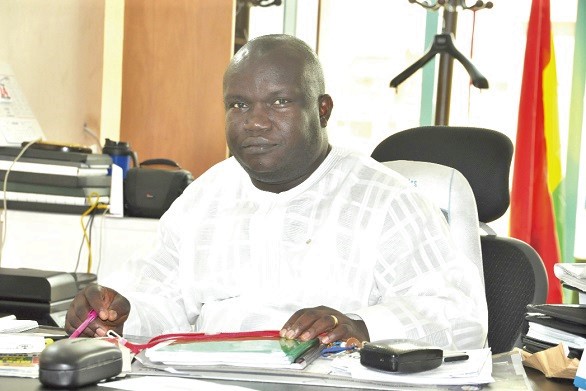
National Engineering Team tells road, utility contractors to engage in telecom services forestall disruption
The National Engineering Coordinating Team (NECT) has urged all road and other utility contractors, supervising engineers and consultants to engage with the team prior to any road project to avoid any disruption in the provision of services by mobile telecommunication companies.
It said contractors’ disregard for consultation and engagement had resulted in disruptions in the provision of services by mobile telecommunication companies which were expensive to fix.
In an interview with the Daily Graphic, the Chairman of the NECT, Dr Kenneth Ashigbey, said engagement among all the stakeholders would not only save industry players the cost of repairs but also ensure that provision of services would be more sufficient.
“Cable theft is one of the challenges of the telecommunications industry, but construction works on our roads are also compounding the problem. Statistics show that road and drain construction takes the biggest chunk of the damage caused to fibre cables and we believe consultation by contractors can help avert such situations, particularly during these times when telecommunications and other utility services are needed to operate at optimum level,” he explained.
Statistics
The digging up of pavements and roads during construction works by contractors and developers end up destroying some of the fibre cables buried underground.
Data available indicate that in 2019, some 3,000 cuts or damage to cables were recorded, out of which 48.31 per cent of the fibre cable cuts were caused by the construction of roads, bridges and drains.
Private developers caused 24.72 per cent of the destruction, while cable theft ended up destroying 7.49 per cent of the cables.
The Greater Accra Region suffers the most damage of 33.33 per cent; Ashanti, 25.28 per cent; Eastern, 14.83 per cent, while Western Region suffers 12.15 per cent of the destruction.
When the cables are destroyed, it takes a minimum of 40 days to fix them.
Cost
Dr Ashigbey said apart from the destruction which disrupted services, considered as an inconvenience to users, the cost of restoring the services was also huge on operators.
“In 2019, there were 3,500 fibre cuts across the country, which cost the telecom operators more than US$3.2 million to fix and several hours in downtime for subscribers.
Apart from sending this huge sum of money to fix the damage, it also takes time to fix the problem, and this means disruptions in service, which makes the service comes across as inefficient, but through no fault of the providers.
“In these trying times of the coronavirus disease (COVID–19) pandemic, the demand for telecommunication and water services has reached a crescendo, but the ability of the service providers to provide reliable service for the citizenry is being hampered by the activities of some road and utility contractors,” he said.
Averting the situation
Dr Ashigbey noted that it was essential that all utility lines, especially those of telecommunication service providers, the Electricity Company of Ghana (ECG) and the Ghana Water Company, functioned at optimum capacity and called on all road and other utility contactors, supervising engineers and consultants on the need for swift action to avert disruptions.
“We entreat that all those involved in the various forms of construction on our roads to contact the NECT prior to the commencement of any road project to facilitate inspection of the project with all utility agencies to locate or otherwise their infrastructure and also prepare for relocation,” he said.
About NECT
The NECT was established to help coordinate the activities of players in road reservations to ensure that development and construction are carried out in a way that supports the stakeholders and reduces disruptions in services by the agencies.
